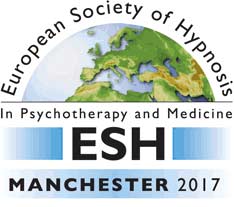
Nicole Ruysschaert
Psychiatrist-psychotherapist, Immediate Past - President of the ESH, Board of Directors Member of ISH, Past- President and BoD member of VHYP – Flemish Scientific Hypnosis Society. After her medical degree at the university of Ghendt, she started specialisation in psychiatry. As a psychiatrist she worked in different mental health centers and in a private practice since 1979. She took further training in CBT, hypnosis and EMDR.
She currently works fulltime in her private practice in Antwerp.
Of Two Minds: A mind/body concert for healing
The additional value of Hypnosis in Psychotherapy
Some neuroscience data of psychotherapy, matching with clinical experience demonstrate which processes are required for promoting health and wellbeing. ‘Brain-wise’ therapists mobilize these processes. Accessing implicit memories, specific therapeutic communication and interactions, the state of hypnosis contributes to therapeutic reconsolidation processes and lasting changes. Symptoms are seen as the best way one had to deal with some issues when they arose, and/or as an expression of implicit memory, from where one can open doors to find change processes. Therapeutic interactions in hypnosis mobilize hidden potentials in the therapist and the clients alike.
Workshop: Of Two Minds: A mind/body concert for healing
Discovering change processes
You get an overview/ familiarize yourself with a seven step therapeutic reconsolidation process. The workshop starts with some ideas/examples of how to look at invalidating symptoms or complaints. Symptoms are seen as the best way one had to deal with some issues when they arose, and/or as an expression of implicit memory, from where one can open doors to find change processes. Some questionnaires on schema therapy and clients observations give some ideas about connections they may have to underlying schemas and early life experiences. A rich variety of common and new hypnosis exploratory methods give access to implicit memories. Accessing resources in hypnosis offers relief and helps to release old pains and suffering and develop new self-images and revalidate one-self. Therapists benefit from more rewarding work and experiences when they see these changes, instead of sharing the vicious circles of never-ending complaints and suffering of their clients.




